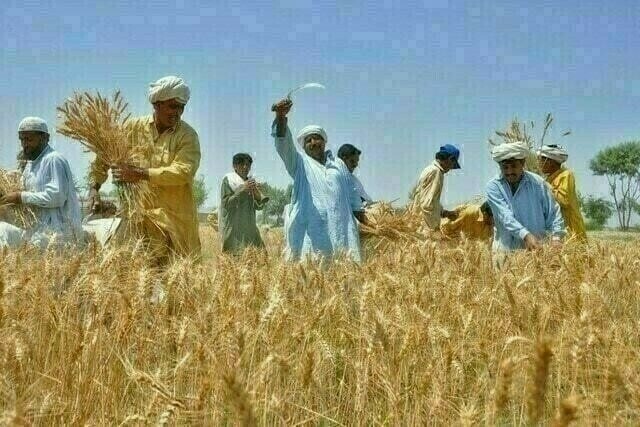KARACHI: Pakistan’s widespread cultivation of the drought-tolerant, bio-fortified zinc wheat variety, Akbar-2019, has not only helped cushion the blow of a projected 10% decline in wheat production this season but also mobilised over USD 85 million in annual investment in the country’s seed sector, experts revealed on Saturday.
Despite extreme drought-like conditions during the 2024–25 Rabi season, wheat yields remained relatively stable due to the resilience of zinc wheat, with Akbar-2019 alone accounting for 42% of the country’s total wheat cropping area.
The variety is expected to contribute approximately 15 million metric tons of zinc-enriched grain, out of an estimated 28.42 million metric tons total national wheat production cultivated across over 9 million hectares.
According to experts, the cultivation of around 178,000 metric tons of certified zinc wheat seeds during the current cropping season has been a game changer for both agricultural productivity and nutrition. The market value of zinc wheat grain is projected to exceed USD 5 billion this year.
This progress has been made possible through robust collaboration between the public and private sectors, with nearly 80 percent of the USD 85 million investment coming from private seed companies.
Zinc wheat varieties are bio-fortified with higher levels of zinc — a micronutrient essential for boosting immune function, promoting child growth, and supporting cognitive development. Their nutritional edge makes them especially important for low-income and rural populations in Pakistan, where zinc deficiency remains a widespread public health challenge.
“Bio-fortified zinc wheat has shown that investing in climate-smart and nutrition-sensitive agriculture is no longer optional — it is essential for the country’s economic development and nutritional security,” said Dr Yaqub Mujahid, Country Manager at HarvestPlus Pakistan, a leading organistion in the global bio-fortification movement.
The success of Akbar-2019 also illustrates the potential of integrating bio-fortified crops into broader agricultural policy and investment frameworks.
Dr Javed Ahmad, Director of the Wheat Research Institute Faisalabad, underscored the role of HarvestPlus in driving innovation and uptake. “We are thankful to our longstanding partnership with HarvestPlus on development and scaling bio-fortified crops, driving economic growth in the country and helping to achieve our food security and nutritional goals,” he said.
HarvestPlus has been instrumental in guiding both public and private sector efforts to develop and promote zinc wheat in Pakistan, unlocking new avenues for seed innovation, farmer outreach, and supply chain development.
Experts believe that expanding bio-fortification to other staple crops can further accelerate Pakistan’s progress toward improved food and nutrition security.
“Strengthening the value chain for bio-fortified foods and embedding bio-fortification into agricultural policy will be key to building a food-secure and nutritionally healthy nation,” said Dr Mujahid. He added that sustained private sector engagement, policy support, and donor investment are essential to scale up these gains and ensure long-term resilience.
Copyright Business Recorder, 2025


